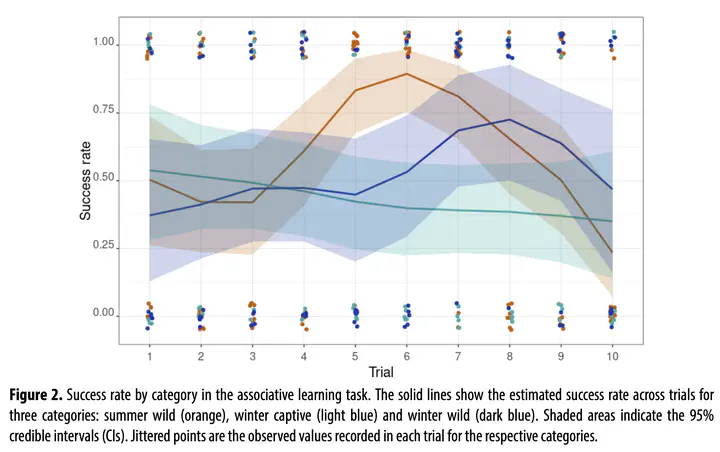Captivity alters behaviour but not seasonal brain size change in semi-naturally housed shrews
 Image credit: C. Baldoni
Image credit: C. Baldoni
Abstract
Captivity, frequently used in animal research, can profoundly alter brain size, cognitive abilities and activity levels. Critically, persistent exposure to stressors in captive environments can lead to chronic stress and subsequently to a range of health issues. However, the direct implications of captivity on research outcomes have not been thoroughly investigated. We examined the effects of captivity on the common shrew, Sorex araneus, a species that exhibits a profound seasonal reversible change in brain and body size. We compared wild shrews during summer and winter to assess seasonal changes in brain size and behaviour and then contrasted these findings with shrews kept in captivity for six months. Using repeated in vivo magnitic resonance imaging, we determined that the extent of seasonal brain size change was not affected by the semi-natural captive conditions. However, captivity led to increased activity levels and reduced learning motivation in the shrews, indicative of chronic stress. These results suggest that even semi-natural conditions can significantly alter the outcome of studies and these effects need to be quantified before experimentation.